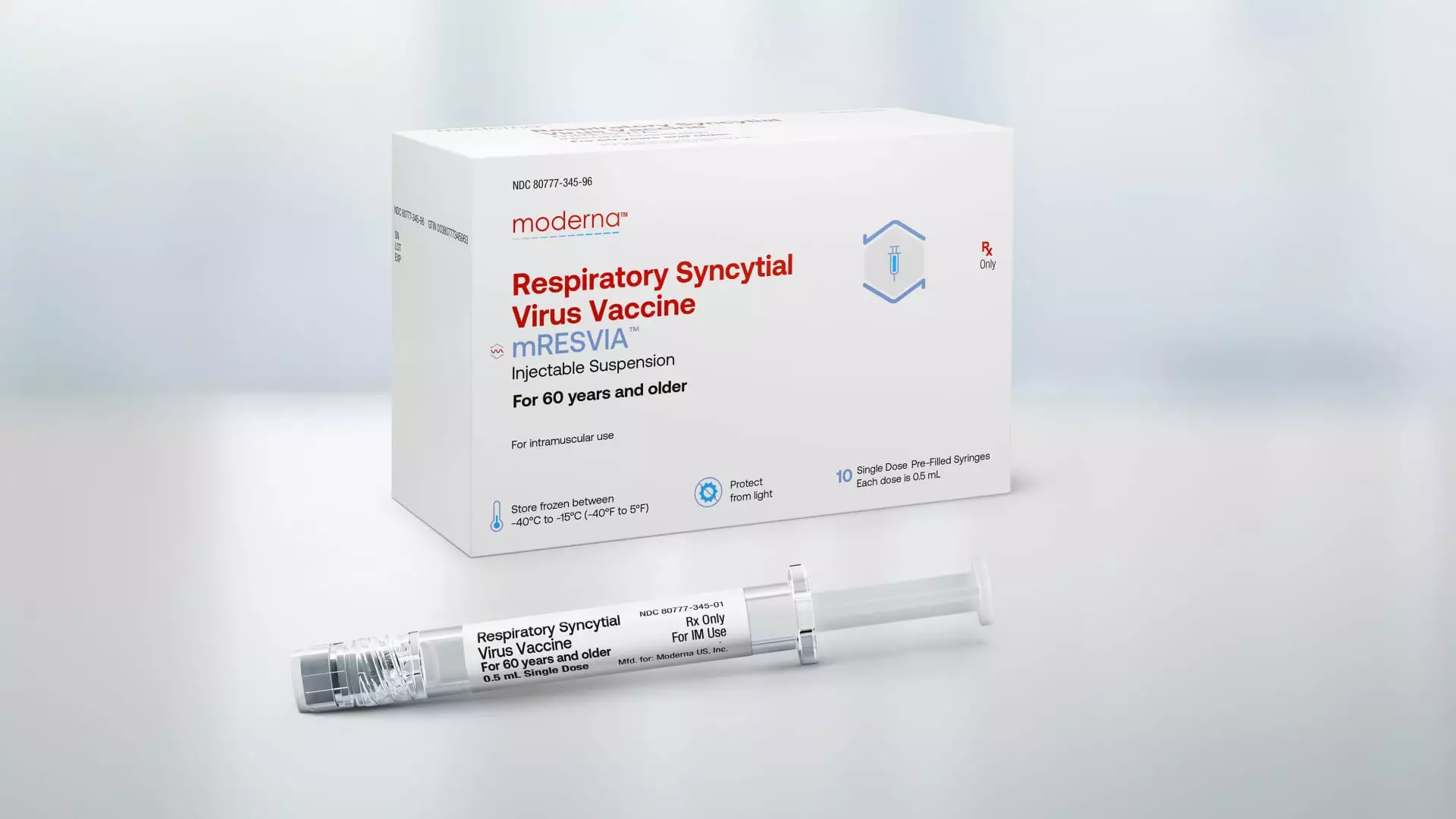The Food and Drug Administration recently gave its approval for Moderna’s vaccine for respiratory syncytial virus (RSV) specifically targeting adults aged 60 and above. This marks a significant milestone for Moderna as it introduces its second product into the U.S. market. The approval comes at a critical time for the company, facing decreasing demand for its Covid jab, which is currently its only commercially available product.
The decision to approve Moderna’s RSV vaccine was based on a late-stage trial conducted on older adults, who are more susceptible to severe cases of RSV. Data from the Centers for Disease Control and Prevention reveals that RSV claims the lives of 6,000 to 10,000 seniors annually and leads to 60,000 to 160,000 hospitalizations. Moderna’s vaccine, branded as mRESVIA, is the first messenger RNA vaccine to receive approval for a disease other than Covid. Additionally, it is the first RSV vaccine available in a pre-filled syringe, making administration easier for healthcare providers.
Market Competition and Revenue Projections
The approval of Moderna’s RSV vaccine sets the stage for competition against existing shots from pharmaceutical giants like GSK and Pfizer, who entered the market last fall. While Pfizer’s vaccine initially lagged behind GSK’s, both companies have generated substantial revenue from their respective RSV shots. Moderna’s sales guidance for 2024 includes revenue projections from its RSV vaccine, estimating around $4 billion in sales. This approval signifies the versatility of Moderna’s mRNA platform beyond addressing Covid, demonstrating its potential in combating various diseases and global health threats.
Future Prospects and Product Pipeline
Modern’s mRNA technology is at the forefront of its product development, with over 40 products currently in the pipeline, focusing on diseases such as RSV, cancer, and norovirus. The company is exploring combination shots targeting Covid and the flu, a stand-alone flu vaccine, personalized cancer vaccines, and treatments for latent viruses. Moderna’s long-term growth strategy aims to achieve sales growth by 2025 and break-even by 2026, propelled by the launch of new products. Investors are optimistic about the potential of Moderna’s mRNA product portfolio, reflecting in a significant increase in the company’s stock value.
Despite the favorable approval of Moderna’s RSV vaccine, challenges remain regarding the declining efficacy of the vaccine over time. Initial trial results indicated an 83.7% efficacy in preventing RSV symptoms at three months, decreasing to 63% efficacy after 8.6 months. This decline raised concerns among investors, who questioned the vaccine’s performance compared to competitors. Moderna defended its results, emphasizing the need for head-to-head trials and highlighting differences in study populations and geographical locations as contributing factors. However, no significant safety issues were reported during the trial, ensuring the vaccine’s overall safety profile.
The approval of Moderna’s RSV vaccine signifies a breakthrough in the healthcare industry, showcasing the potential of mRNA technology in addressing critical health challenges. With a robust product pipeline and revenue projections, Moderna is poised for significant growth in the coming years, positioning itself as a key player in the fight against infectious diseases and global health threats.


Leave a Reply